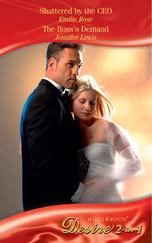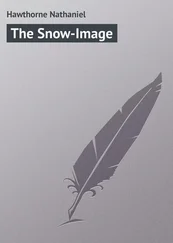“That was the extent of what she told you?”
“Yeah,” Tommy said. “And I know she’s holding something back, because she doesn’t look you in the eye when she talks, you know?”
“She’s an odd one,” Mike said. “She’s off-kilter somehow-looking up at the wall when she talked, giving abbreviated answers to all of our questions, so that we had to pry every detail out of her.”
“She has some really strange mannerisms,” Tommy said. “Her eyes darted all over that wall, but she never looked at us. Other than her initial hysterical sobbing, her responses were all cool-disconnected. She had nervous movements, closed her eyes when she was talking to us…”
“Yeah, and the only other time she showed any emotion,” Mike said, “was when she was talking about Addie. Then she became agitated and angry.”
“She said Addie’s name with jealousy attached to it,” Tommy told me.
“A woman can shoot another woman in the head, dig a hole and bury her,” Mike said.
“And a woman can dig up bones and rebury them,” Tommy added.
“Do you think she could have killed them both?” I asked.
“Toni, I’ve seen everything in homicides, and I’ve seen women commit some pretty gruesome murders.”
“Yeah, Mom, what about that wacko nurse who killed all those kids that time?”
“Okay. Point taken. If the woman is weird enough, anything is possible.”
Then I told them both about the conversation I’d had with Leo about the crime. I told them everything she had told me.
“I even asked Leo if the killer could be a woman,” I said.
“What’d she say?” Tommy asked.
“She said the killer could definitely be a woman, but that the stats say it’s more likely to be a man.”
“The things that Leo said could fit any of our suspects,” Mike said.
“Yeah, I agree,” Tommy said.
“The truth is here somewhere,” I said.
After the graveside service in Viola, Mike and Tommy headed back to Austin. I stopped in at the local café for some lunch. Notice I said the local café, because one was all they had. Viola was so small, there wasn’t even a Dairy Queen. The café was called the Main Street Café. Its proprietor was a sturdy-looking woman by the name of Doris. I knew her name was Doris because it was sewn onto the left breast pocket of the apron she wore.
I had seated myself at the counter and Doris approached me with a green plastic tumbler in one hand and a water pitcher in the other. Under the apron, Doris wore a cotton print dress. Her hair was bleached blond-probably to cover the gray-and teased up into the big-hair style. She had pudgy little hands and long fingernails polished expertly with red lacquer. Her lipstick matched her nail polish and, upon close inspection, I could see that Doris had run the lipstick just slightly outside of the natural edge of her lips. She couldn’t have been more than five or six years older than me, but she seemed old enough to be my grandmother. In fact, she kind of reminded me of my grandmother.
“Hey there, hon. You’re not from around here. Must be in town for Addie’s funeral, right?”
“Well, yes,” I said, just a little nonplussed. Then it occurred to me that this would be one of the few funerals they’d have in a town like this for a while, and as it involved murder and discovery of a missing woman sixteen years after her disappearance, this would be big doings indeed. Why else would an outsider stop in a small town like Viola, six miles off of the state highway, just to eat lunch?
“I don’t recall ever seeing you before, hon. How did you know Addie?”
“Well, actually I never knew her in life. I’m the sculptor who reconstructed her face from her remains.”
“Well, I say! You are, are you? Well, I say…”
She poured the water into the glass, shaking her head the whole time.
“Well, now, what can I get you for your lunch, hon?”
I gave Doris my order and she scratched it down on a little order pad she pulled out of her pocket, tore off the page and handed it through a small window behind the counter.
“There you go, Pop,” she said to the man who was slaving over the stove.
Doris tended to several customers at the other end of the counter. Soon, two of them at the other end craned their necks around to look at me, and then whispered to Doris again. A few seconds later, Doris came back my way with the water pitcher. She was smiling and popping chewing gum between her teeth.
“You know, hon, I saw that sculpture you did on the news the other night. I knew as soon as I seen it that it was her. You just did a wonderful job-a wonderful job. How’d you do such a great job of making that look like little Addie?”
I explained to her about the anthropological charts and about what I do to try to make the reconstruction as personal and human as I can. She listened intently, nodding the whole time and alternately smacking and then popping her gum.
“Well,” she said when I was done with my explanation, “you just did a wonderful job.” Then she sighed appreciatively.
I thanked her and she turned around to get my sandwich out of the pass-through window where Pop had put it. She laid it on the counter in front of me and winked as she walked away.
The sandwich was delicious. It consisted of cheese, tomatoes, lettuce, onions and Doris’s special dressing on whole wheat bread. On the menu it came with ham, but as I’m a vegetarian, I had asked Doris to omit that. As I licked my lips over the last couple of bites, Doris revisited my section of the counter.
“How was it, hon?”
“Mmm, fantastic,” I said while still chewing the last bite.
“How about some of my homemade pie?”
“Oh, I don’t know…”
“Oh, hon, you have to have some of my homemade pie. We have chocolate cream today and apple. Everyone just raves about them both, but my favorite is the apple.”
“Well, okay, I’ll have the apple.”
“You want ice cream on it, hon?”
“No, thank you.”
When Doris cut you a piece of pie, Doris cut you a slab of pie. I have lived in Texas my whole life and I don’t recall ever seeing a piece of pie that large, not even at my grandma’s house.
Doris hung over the edge of the counter waiting for me to take the first bite. That pie was heaven in a crust.
“Oh my!” I exclaimed.
Of course, Doris was delighted at my reaction.
“Well, I’m sure glad you like it all that well. That just makes me feel so good.” She bumped the heel of her hand on the edge of the counter for punctuation.
As was typical in a small town in Texas, the owner of the local café knew just about everybody and everything going on in town and the surrounding area. I decided to find out just how much information I could get from Doris.
“So, Doris, how well did you know Addie?”
“Oh, hon, I knew her and Dody their whole lives. Why, Dody’s about eight years younger than me and I can remember when he was born. My little brother used to play with him.”
“I see.”
“Addie was a lot younger. Her birthday was just a week before mine. I always remembered that because she was born right before my sweet-sixteen party.” Doris beamed at the memory.
“Well, how about that?” I said.
“Yes. Mama and Daddy had a party out at the house and Daddy churned homemade ice cream and Mama made pie-that very recipe that I used to make the pie you’re eating right now!”
“Oh, well, what a treat.”
“Yes, it was. Mama and Daddy invited everyone in town to my party-everyone! It was wonderful. Pop was there, too.” She pointed back at Pop in the kitchen.
“Oh, really?”
“Why, yes. Pop was my sweetheart from high school.”
Then she began to tell me how Addie and Dody had begun dating when Addie was sixteen. Dody was already twenty-four by then and some people in the town were wondering if he would ever settle down. They thought Addie was too young for him, or at least too young to know what she was doing. He and Addie did marry, though, and had two children, Melissa and Emma.
Читать дальше
Конец ознакомительного отрывка
Купить книгу

![Никки Сикс - Героиновые дневники. Год из жизни павшей рок-звезды[The Heroin Diaries - A Year in the Life of a Shattered Rock Star]](/books/78612/nikki-siks-geroinovye-dnevniki-god-iz-zhizni-pavshej-rok-zvezdy-the-heroin-diaries-a-yea-thumb.webp)
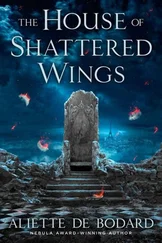
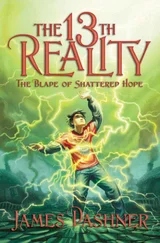




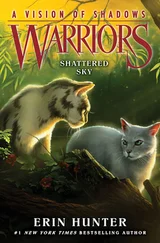
![Ширли Мерфи - The Shattered Stone [calibre]](/books/436059/shirli-merfi-the-shattered-stone-calibre-thumb.webp)
